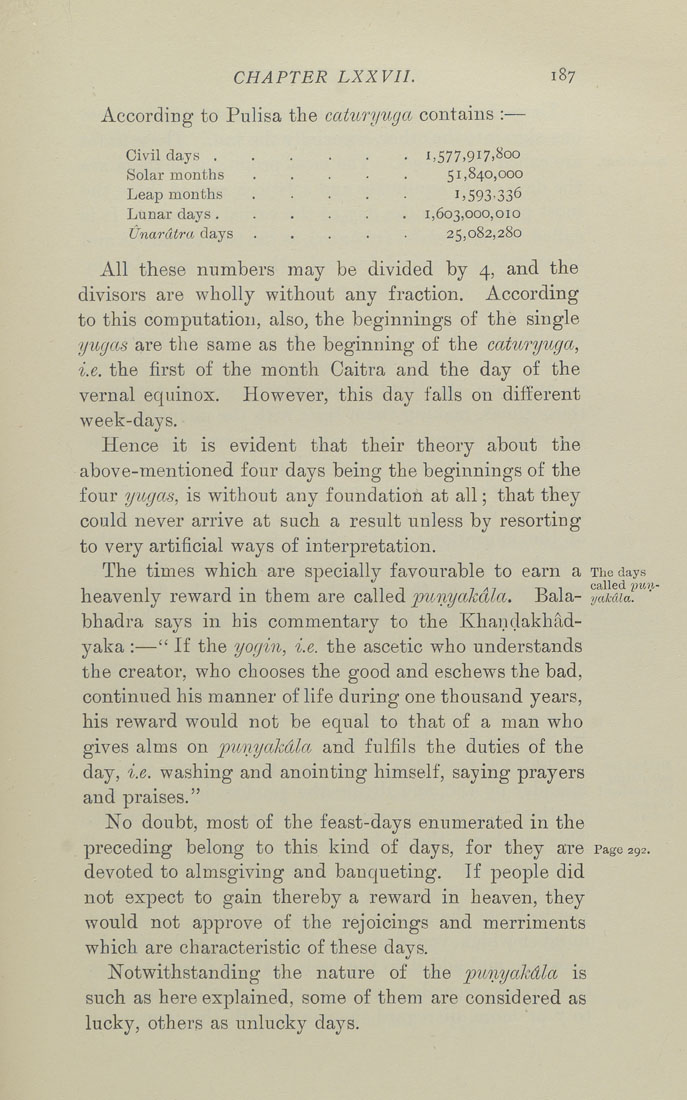CHAPTER LXXVII.
According to Pulisa the cctturyugct contains :-
Civil days .
Solar months
Leap months
Lunar days.
Unardtra, days
1,577,917,^00
51,840,000
1,593.336
1,603,000,010
25,082,280
All these numbers may be divided by 4, and the
divisors are wholly without any fraction. According
to this computation, also, the beginnings of the single
yugcts are the same as the beginning of the caturyuga,
i.e. the first of the month Caitra and the day of the
vernal equinox. However, this day falls on diff'erent
week-days.
Hence it is evident that their theory about the
above-mentioned four days being the beginnings of the
four yugcts, is without any foundation at all; that they
could never arrive at such a result unless by resorting
to very artificial ways of interpretation.
The times which are specially favourable to earn a The days
heavenly reward in them are cvi}ded punyakdla, Bala- yakcaa..
bhadra says in his commentary to the Khandakhad¬
yaka :—" If the yogin, i.e. the ascetic who understands
the creator, who chooses the good and eschews the bad,
continued his manner of life during one thousand years,
his reward would not be equal to that of a man who
gives alms on punyakdla and fulfils the duties of the
day, i.e. washing and anointing himself, saying prayers
and praises."
No doubt, most of the feast-days enumerated in the
preceding belong to this kind of days, for they are Page 292.
devoted to almsgiving and banqueting. If people did
not expect to gain thereby a reward in heaven, they
would not approve of the rejoicings and merriments
which are characteristic of these days.
Notwithstanding the nature of the punyakdla is
such as here explained, some of them are considered as
lucky, others as unlucky days.
|








